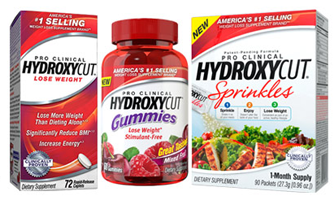You’ve probably seen advertisements for the No 1 Weight Loss Supplement.
If manufacturers claim the weight loss supplement is popular, it has to be good, right?
You see, there’s some basic research to suggest Hydroxycut and other products containing fruit-based substance called hydroxycitrate which may help block fat and suppress appetite.
Truth is there just isn’t a lot of good clinical evidence to actually support that claim it helps people lose weight.
In fact, hydroxycitrate may promote liver damage and of course this all depends on whom you ask.
So does this weight loss supplement make the cut?
Is This Fat Blocker Supplement Too Good to Be True Approach to Weight Loss?

Hydroxycitrate acid also known as Hydroxycitric acid (HCA), is a citric acid derivative produced in the fruits of certain plants…
Garcinia cambogia, does that ring a bell?
Yes a native plant to Indonesia, Southern India, China, Burma, Cambodia, Thailand and Sri Lanka (Ceylon).
The Garcinia fruit has long been used in cooking, adding sweetness to chutneys and curries.
And it’s also been part of traditional Indian medicine to help ease gastrointestinal problems, rheumatism and more.
Yet it wasn’t until the 1970s scientists began to look at hydroxycitrate for its potential as an approach to weight loss.
That’s when researchers first found rats fed high doses of HCA ate less food and stopped gaining weight.
Over the years, additional animal and laboratory studies have shown HCA may promote fat loss in three different ways:
- Inhibiting the body’s ability to store fat
- Helping to burn fat for energy
- Reducing appetite
- Raising levels of neurotransmitter serotonin
All sounds pretty exciting…
So…how does hydroxycitrate stack up in human studies?
HCA appears to inhibit citrate lyase, an enzyme in the body which converts carbohydrates into fat, cholesterol and triglycerides.
Now that doesn’t mean this translates to weight loss in people…
There are some studies that suggest some benefit.
For example, one randomized, double-blind, placebo-controlled trial looked at the effect of HCA on weight loss in 60 moderately obese people.
The researchers found after 8 weeks, people taking HCA lost about 5% of their body weight compared to people who took a placebo supplement.
Although this study is impressive, it is the only one of its kind supporting the efficacy of HCA in weight control.
In fact, the results of a review of data from randomized clinical trials of HCA weren’t so promising.
Although the analysis found a small difference in weight loss favoring HCA over placebo in the short term the magnitude of this effect is small.
In other words it is no longer statistically significant when only rigorous trials are considered…
Ad its clinical relevance seems questionable.
Looks like HCA has a long way to go before it can truly be called an effective supplement for weight loss.
A lack of good clinical evidence isn’t the only problem with hydroxycitrate…
You see, the supplement may act as a hepatoxin, which means it may damage the liver.
A 2009 report in the World Journal of Gastroenterology listed HCA as a hepatoxin.
And in its own studies the same year the U.S. FDA linked HCA to a number of health problems.
The FDA was so concerned about these potential risks it banned certain products containing HCA.
Hydroxycut™ was recalled by the Food and Drug Administration (FDA) in early 2009 due to risks associated with it.
In total, Hydroxycut™ products were banned in the U.S. because of reports of illness and one confirmed death.
Yet some proponents of HCA don’t agree with these dangerous health concerns.
Some researchers believe liver damage and other health problems could be due to other substances in the supplements, not HCA.
And it’s worth noting Canada still allows HCA as an ingredient in natural products…
Even though they originally recalled certain Hydroxycut™ supplements, too.
Is There A Safer and Better Way to Weight Loss…
For now it seems the possible risks of HCA outweighs any benefits.
While more clinical studies could someday shed light on the role this supplement may play in weight loss…
At least for now I would recommend taking a pass on hydroxycitrate…
As I have said before, there are no miracle pills or magic bullets when it comes to weight loss.
A healthy diet and regular exercise is the cornerstone of good health and optimal weight. Period!
Focus on eliminating all refined carbs and sugar.
Stick to high-quality forms of protein (grass-fed, pastured, and free range) and combine with plenty of low-glycemic veggies.
Leafy greens like spinach, chard, and kale as well as broccoli are especially healthy.
Match this with short and intense interval training 2 to 3 times a week as often as you can manage.
If you do decide to take HCA, don’t take more than 3,000 mg a day.
The average recommended dose for weight loss is 500 mg four times a day.
That’s not as easy as it sounds…
The Supplement Facts panel of a product label usually lists the quantity of Garcinia cambogia extract and a quantity of HCA, which is a smaller number.
In some supplements, HCA makes up about 50% of the extract, so you would need 1,000 to 2,000 mg of the Garcinia extract to get 500 to 1,000 mg of HCA.
Makes good sense to avoid HCA altogether if you also take insulin, glyburide (a diabetes medication) or statin drugs, as it may interact with them.
Yes, keep an open mind to new ideas, but ALWAYS do your own homework…
And combine that with common sense to figure out what’s best for you.
Weight Loss Supplement
References:
Preuss HG, Bagchi D, Bagchi M, et al. Effects of a natural extract of (-)-hydroxycitric acid (HCA-SX) and a combination of HCA-SX plus niacin-bound chromium and Gymnema sylvestre extract on weight loss. Diabetes Obes Metab. 2004 May;6(3):171-80.
Onakpoya I, Hung SK, Perry R, et al. The Use of Garcinia Extract (Hydroxycitric Acid) as a Weight loss Supplement: A Systematic Review and Meta-Analysis of Randomised Clinical Trials. J Obes. 2011;2011:509038.
Stohs SJ, Preuss HG, Ohia SE, et al. No evidence demonstrating hepatotoxicity associated with hydroxycitric acid. World J Gastroenterol. 2009 Aug 28;15(32):4087-9.


